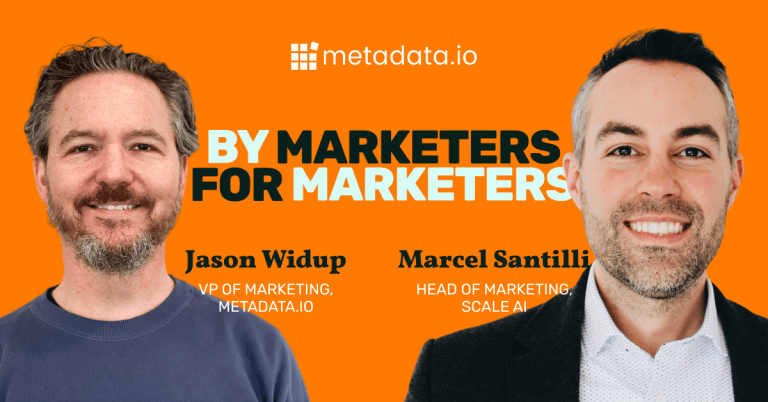How to Find the Right Google Ads Management Agency for B2B SaaS

Table of Contents
A Google Ads management agency helps businesses excel in paid search advertising. For B2B SaaS companies, where competition is fierce and precise targeting makes all the difference, partnering with such an agency can be transformative.
These agencies handle keyword research, ad creation, budget management, and performance analysis. They dive deep into data and deploy advanced strategies to ensure every ad dollar drives tangible results.
What Does a Google Ads Management Agency Do?
A Google Ads management agency focuses on managing and optimizing Google Ads campaigns. They help businesses harness paid search advertising to drive traffic and generate leads effectively.
They help businesses with:
- Campaign setup: They strategically plan campaigns based on your goals and budget to reach your target audience.
- Keyword research: They pinpoint keywords your potential customers use, ensuring high relevance and impact.
- Ad creation: They craft compelling ads that grab attention and generate clicks while staying true to your brand messaging.
- Performance monitoring and optimization: They closely monitor performance, making adjustments based on data to optimize ad accounts by adjusting keywords or bids.
What sets a Google Ads management agency apart from a general digital marketing agency is its specialized focus. General agencies might offer various services like SEO or social media, but Google Ads agencies concentrate on making your paid search campaigns as effective as possible.
Why Partner with a Google Ads Management Agency?
A Google Ads management agency is a strategic driver that expands your reach and pulls in qualified traffic. For B2B SaaS and tech companies with specific audiences, effective ad management—including competitor-focused campaigns—ensures campaigns engage the right people at the right time.
But this isn’t the only benefit of working with a Google Ads management agency.
Improved Keyword Strategies
A detailed keyword strategy is the backbone of any successful Google Ads campaign. Experienced Google Ads management agencies use advanced tools and analytics to fine-tune keyword selection for targeted marketing. This precise targeting boosts the relevance of your ads and amplifies their conversion potential.
Budget Optimization
Google Ads management agencies use smart budgeting techniques to allocate and manage your ad spend for the best returns. They constantly monitor and tweak campaigns to ensure resources flow to high-performing keywords and ads, cutting down on wasted spending through data-driven analysis. This financial savvy means you get the most out of your advertising budget.
Performance Tracking and Reporting
Agencies use sophisticated tracking to gather actionable insights from advertising spend. Detailed performance reports give you visibility into key metrics like click-through rates, conversion rates, and cost per acquisition. The agency does all the hard work when it comes to data collection and analysis. Your only job is to make strategic decisions based on the data.
How to Choose the Right Google Ads Management Agency
Outsourcing your marketing campaigns to a Google Ads management agency can significantly impact your marketing success, but it’s not just about picking the biggest name or the agency with flashy ads. You need a partner who understands your business goals, knows how to stretch your budget for maximum returns, and communicates clearly.
Look for a Proven Track Record with Results That Matter
Not all agencies are equal. Some may be great at making promises but fail to deliver meaningful results. Start by asking for case studies, testimonials, or specific examples of campaigns they’ve managed—ideally in industries similar to yours. Look at how they’ve improved key metrics like conversions, cost per lead (CPL), or return on ad spend (ROAS) for other clients.
Focus on the metrics that are most important to your business. For example, if lead generation is your top priority, look for campaigns where the agency reduced the CPL while maintaining quality leads. Don’t be shy about asking for numbers—they should be able to provide data that shows real success. If they can’t, that’s a red flag.
Evaluate Their Knowledge of Your Industry
Industry knowledge isn’t a dealbreaker, but it can give an agency a head start on understanding your challenges and audience. For B2B SaaS marketers, for instance, you want an agency that knows how to target decision-makers, handle longer sales cycles, and emphasize ROI-focused messaging.
Ask how the agency would approach your specific needs. Do they have experience with your competitors or similar business models? Agencies with industry experience can often avoid common pitfalls and create more effective strategies faster. However, even if they lack direct experience in your field, a good agency should be willing to research and learn about your business in depth.
Evaluate Their Communication Style and Transparency
Communication can make or break your relationship with an agency. You don’t want an agency that bombards you with buzzwords and vague reports. Instead, you want clear, actionable updates that help you understand your campaign’s performance and next steps.
During your initial conversations, pay attention to how they explain their process. Are they transparent about how they’ll manage your budget, measure success, and optimize campaigns?
Ask about reporting: How often will they share performance data, and what metrics will they highlight? A good agency should provide detailed yet easy-to-understand reports and be open to regular strategy discussions.
Understand Their Approach to Budget Management
A great agency knows how to maximize your ad spend by focusing on high-impact areas. They should be skilled at identifying underperforming keywords or ad groups early and reallocating budgets to better-performing ones. Ask how they handle budget adjustments, especially when scaling up campaigns.
It’s also important to understand their strategy for testing and optimization. Are they proactive about A/B testing ad copy, landing pages, and bidding strategies? Effective budget management doesn’t mean simply spending less—it means spending smarter by continuously optimizing for better ROI.
Inquire About Their Tools and Technology
Agencies often have access to advanced tools for tracking, automation, and analytics that can provide a major advantage. These tools help monitor performance in real-time, conduct keyword research, and identify optimization opportunities faster than manual efforts.
Ask what platforms they use and how these tools will benefit your campaigns. For example, if they use Google’s Smart Bidding or other automation features, find out how they balance automation with human oversight.
Get Clarity on Pricing and Contracts
Make sure you understand how the agency charges for its services. Some agencies work on a percentage of ad spend, while others charge a flat fee. Ask for a breakdown of what’s included in their pricing—strategy development, creative support, reporting, and campaign optimization should all be part of the package.
Be cautious of long-term contracts that lock you in without flexibility. A good agency will earn your continued business through results, not restrictive agreements. Make sure there’s a clear exit clause in case the partnership doesn’t meet your expectations.
Transform Your Google Ads Success with Metadata.io
Traditional Google Ads agencies rely heavily on manual processes, which can slow down performance and limit scalability. Metadata offers a different approach, using automation, data integration, and advanced audience targeting to streamline your campaigns and deliver better results.
With Metadata’s platform, tasks like building campaigns, audience testing, and budget adjustments are fully automated. This frees up your team to focus on creative strategy rather than spending hours on campaign setup and optimization. The platform also connects directly to your CRM, allowing you to track which campaigns generate actual revenue—not just leads. This means budget decisions are based on real performance data, ensuring resources are allocated to the most impactful campaigns.
Metadata’s MetaMatch technology improves audience targeting by matching personal emails to verified business profiles from a database of 800 million B2B contacts. This approach ensures your ads reach the most relevant decision-makers, improving both engagement and conversions on platforms like Google Ads.
By partnering with Metadata, you gain a scalable, data-driven solution that helps you run more efficient campaigns, improve ROI, and grow your business faster. Want to see the difference? Book an intro today.


